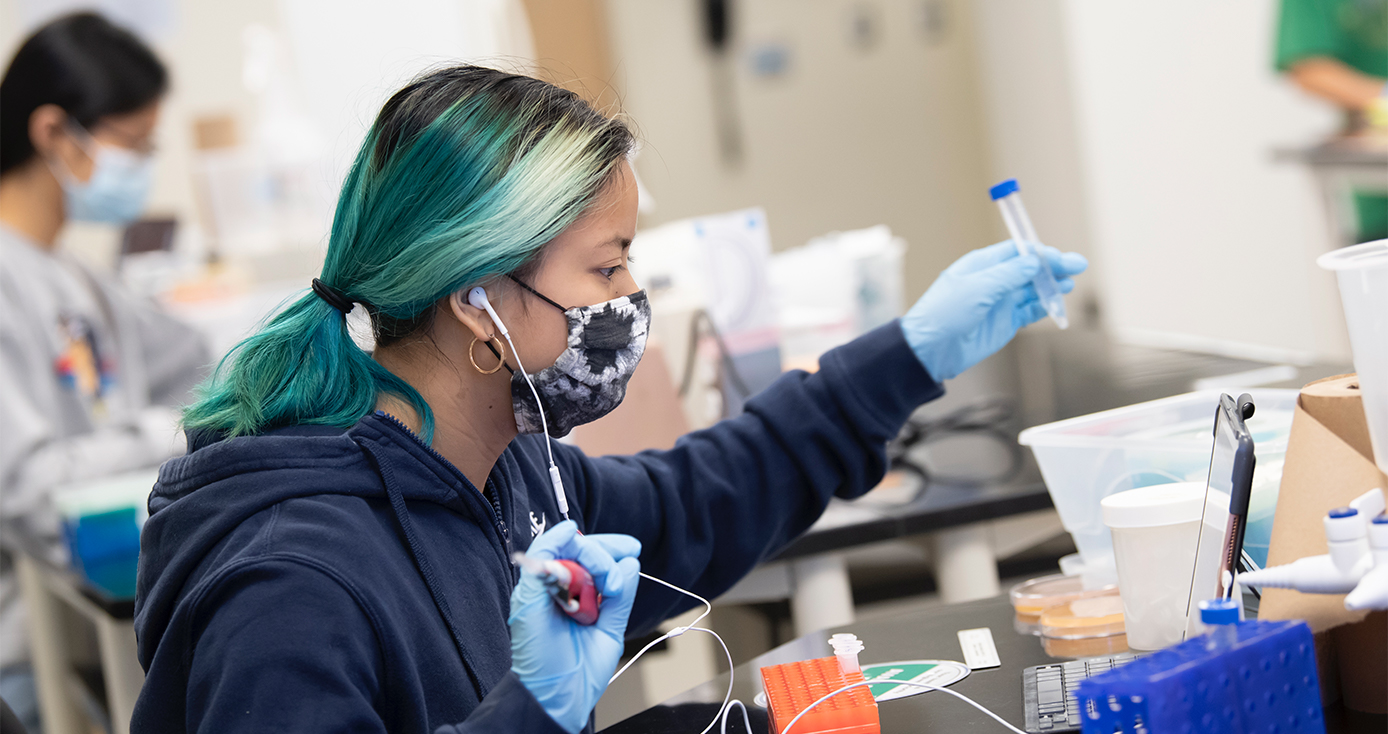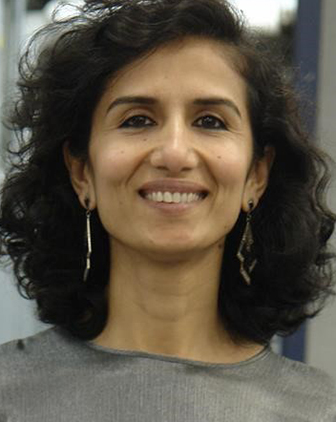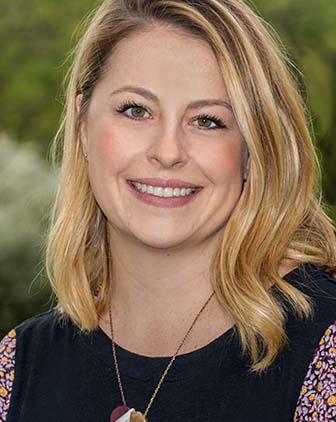 The to start with calendar year of university often arrives with nerves and uncertainty for new students. Will I make close friends? How difficult will my courses be? Am I excellent more than enough to pass an intro class?
The to start with calendar year of university often arrives with nerves and uncertainty for new students. Will I make close friends? How difficult will my courses be? Am I excellent more than enough to pass an intro class?
A handful of a long time in the past, a team of Pitt science instructors who educate initial-yr college students questioned: What would transpire if we acknowledged that struggling is a normal element of the university working experience?
The Ecological-Belonging Intervention—an training created to decrease discrepancies between 1st-yr pupils having introductory science classes and normalize the challenges that appear with the transition to college—is proving that a mere recognition of the challenges that students experience can assist to dismantle racial and gender accomplishment gaps. So substantially so that the exercise is now necessary for every university student that takes an introductory biology or physics system.
The intervention, which started as an experiment in a 2015 biology lecture, is now getting adopted in universities across the nation and yielding related final results. The paper, “Altering Social Contexts to Foster Equity in Faculty Science Classes: An Ecological-Belonging Intervention,” outlines findings connected to the experiment and was printed in the Association for Psychological Science past calendar year.
 “You can obviously convey to there is a variance in tradition just after an intervention,” explained Chandralekha Singh, a professor in the Kenneth P. Dietrich Faculty of Arts and Sciences’ Department of Physics and Astronomy and director of the Discipline-Based Science Education Investigation Center (dB-SERC). “Students from racially ethnic minority teams and gals are more possible to really feel engaged in team conversation and dilemma fixing, and individuals students now experience like it is a safe and sound environment. They’re keen to actively participate without sensation judged.”
“You can obviously convey to there is a variance in tradition just after an intervention,” explained Chandralekha Singh, a professor in the Kenneth P. Dietrich Faculty of Arts and Sciences’ Department of Physics and Astronomy and director of the Discipline-Based Science Education Investigation Center (dB-SERC). “Students from racially ethnic minority teams and gals are more possible to really feel engaged in team conversation and dilemma fixing, and individuals students now experience like it is a safe and sound environment. They’re keen to actively participate without sensation judged.”
The intervention came about just after Erica McGreevy, a lecturer in the Department of Biological Sciences, began trying to find methods to lessen the sense of isolation first-year college students may well feel when using Foundations of Biology 1—a system that normally sees 300 college students for each lecture course and 75 to 80 in the course of weekly recitations. She understood that 30% of college students weren’t finding out adequate in the study course to go on to Biology 2 and that there was a disproportionate effect on female and nonwhite students.
She started studying social psychology in school rooms and realized that learners who are underrepresented in large teams can deficiency a feeling of belonging and fall target to perceptions that they are not meant to succeed in the self-discipline.
How the intervention performs
McGreevy teamed up with Kevin Binning, an assistant professor in the Department of Psychology and analysis scientist in the Learning Analysis and Improvement Center (LRDC) to create the intervention. It was initial employed with 50 % the college students in McGreevy’s Foundations of Biology study course taking portion in the intervention and the other 50 percent serving as a handle group.
 All through the training, which is conducted through recitations, learners are divided into teams of 4 that will stay collectively all through the semester. The teacher begins by speaking about troubles these kinds of as navigating a new campus, altering to to new classroom ordeals and establishing a perception of belonging as students enter their to start with year. Learners then invest 10 minutes writing about the changeover from large school to university. Instantly right after, college students hear estimates from graduating seniors from a assortment of backgrounds who experienced similar issues as they start out university but were capable to press earlier them to triumph. The next phase is for the team of 4 to share what they’ve published with each individual other.
All through the training, which is conducted through recitations, learners are divided into teams of 4 that will stay collectively all through the semester. The teacher begins by speaking about troubles these kinds of as navigating a new campus, altering to to new classroom ordeals and establishing a perception of belonging as students enter their to start with year. Learners then invest 10 minutes writing about the changeover from large school to university. Instantly right after, college students hear estimates from graduating seniors from a assortment of backgrounds who experienced similar issues as they start out university but were capable to press earlier them to triumph. The next phase is for the team of 4 to share what they’ve published with each individual other.
McGreevy claimed the estimates highlighted by graduating seniors—such as one by a white male biology important indicating he was scared he would not do very well in the training course and a quote from a Black woman neuroscience main declaring the system will get better—were developed to challenge stereotypes and show that learners from all backgrounds enter the course with related concerns. Breaking down these silos has amplified self-efficacy amongst college students in methods that have significantly diminished disparities in between white and nonwhite students having Foundations of Biology and woman and male pupils using Primary Physics for Engineers. College students of all backgrounds who participated in the intervention also noticed greater cumulative quality stage averages than individuals who didn’t two to 4 yrs right after the initial examine.
Considering the fact that the original study, the intervention has been expanded to all demanded introductory classes. Jeremy Levy, a Distinguished Professor in the Office of Physics and Astronomy, has also utilized it to Introduction to Quantum Mechanics, which is required in all the department’s majors and serves as a capstone system. In addition to implementing the intervention to an sophisticated study course, he has also made a video that reveals instructors how to undertake the technological know-how in their individual lecture rooms. He and Binning acquired funding as a result of dB-SERC’s Study course Transformation Grant application to develop the films.
College students of all backgrounds who participated in the intervention also observed better cumulative quality stage averages than these who did not two to four years following the original research.
Just one crucial device of adoption, claimed Singh, is for instructors to think that each individual college student is capable of passing their course.
“If I as an teacher really don’t experience all of my college students can excel in physics, they will not. If I say it is my career as an instructor to make all learners really go by way of the roof and do well, they will,” she reported. “In order to do the intervention you have to inculcate a development way of thinking among instructors.”
Considering the fact that the study went community in April 2020, its final results have been duplicated at the College of Minnesota, which shut achievement gaps among the underrepresented minorities getting introductory chemistry programs. Binning said Princeton University and University of Cincinnati have observed equivalent results.
McGreevy admitted, at initial, that discussing thoughts during a science system seemed counterintuitive.
“I felt a tiny foolish doing it. It’s a classroom of 18- and 19-calendar year-olds and we’re going to speak about inner thoughts now. As scientists, that is not what we do, but I was stunned by the participation and pupil opinions,” she said.
Singh said any reservations one could possibly have about the intervention will be eradicated just after instructors see final results for by themselves.
“It doesn’t hurt any individual, but it acts as water on parched land for those people wondering no matter if they belong or if they have what it can take to succeed,” she mentioned.
